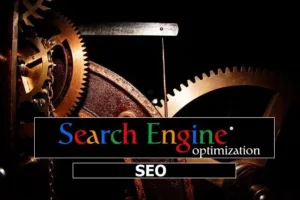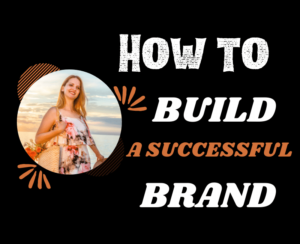In the dynamic landscape of business, the role of marketing in fueling growth cannot be overstated. Whether you’re a startup or an established enterprise, the decision of whether to engage a marketing agency for your business growth is pivotal. This guide aims to navigate you through the considerations, benefits, and potential concerns associated with this decision.
Understanding the term “marketing agency” is fundamental. A marketing agency is an external team of experts specializing in various facets of promoting and elevating a brand. The burning question that often arises is, “Do I Need a Marketing Agency for My Business Growth?” Let’s delve into the details.
In this guide, we’ll help you analyze whether having a Digital Marketing Agency is a good fit for your business or not.
We’ll look at:
Benefits of Hiring a Marketing Agency
Embarking on the journey of hiring a marketing agency can bring significant advantages to your business. Let’s delve into the compelling benefits that arise from enlisting the expertise of a professional marketing team.
1. Increased Expertise and Specialized Skills
Partnering with a marketing agency means tapping into a pool of specialized skills and expertise. These professionals are well-versed in the latest trends, tools, and strategies that can give your business a competitive edge. From content creation to data analytics, a marketing agency brings a diverse skill set to the table.
2. Time and Resource Efficiency
Running an effective marketing campaign demands time and resources. By outsourcing this responsibility to a marketing agency, you free up valuable internal resources, allowing your team to focus on core business functions. The agency’s efficiency and dedicated focus contribute to a streamlined marketing process.
3. Access to a Broader Network and Industry Insights
Marketing agencies often have extensive networks and insights into various industries. This broad perspective enables them to tailor strategies that resonate with your target audience. They bring valuable market intelligence, helping your business stay ahead of industry trends and changes in consumer behavior.
4. Case Studies Showcasing Successful Business Growth
Real-world success stories speak louder than promises. A reputable marketing agency can provide case studies showcasing businesses similar to yours that have experienced significant growth through their services. These case studies offer tangible evidence of the impact a marketing agency can have on business expansion.
The decision to engage a marketing agency is multifaceted, and understanding the specific benefits is crucial. In the next section, we’ll explore how to assess your business needs to determine if hiring a marketing agency aligns with your goals.
Assessing Your Business Needs
Before embarking on the journey of hiring a marketing agency, it’s essential to conduct a thorough assessment of your business needs. This step is pivotal in ensuring that the strategies employed align with your goals and objectives.
1. Self-Assessment Checklist
Determining Your Current Marketing Strategies. Start by evaluating your existing marketing efforts. Ask yourself the following questions:
– What channels are you currently utilizing for marketing?
– How effective are your current strategies in reaching your target audience?
– Are there specific areas where your marketing efforts are falling short?
This self-assessment provides a baseline understanding of your current marketing landscape, highlighting areas that may benefit from professional expertise.
2. Identifying Specific Goals for Business Growth
Clearly defined goals are the compass guiding your business growth. Consider the following:
– What are your short-term and long-term business objectives?
– How do you envision your brand positioning in the market?
– Are there specific metrics you aim to improve, such as lead generation or conversion rates?
By identifying these goals, you create a roadmap that a marketing agency can use to tailor strategies to your unique business needs.
3. Understanding Your Target Audience and Market
Marketing success hinges on a deep understanding of your target audience. Reflect on:
– Who is your ideal customer?
– What are the demographics, preferences, and pain points of your target audience?
– How does your product or service fulfill their needs better than competitors?
This understanding forms the foundation for creating content and campaigns that resonate with and engage your audience effectively.
In the next section, we’ll explore the key services offered by marketing agencies and how they can be aligned with your identified business needs.
Key Services Offered by Marketing Agencies
Understanding the array of services provided by marketing agencies is crucial in aligning their expertise with your business needs. Let’s delve into the key services that these agencies typically offer:
1. Digital Marketing Strategies
1.1 Search Engine Optimization (SEO)
– Importance: SEO enhances your online visibility, making your website rank higher in search engine results.
– Implementation: Keyword optimization, quality content creation, and building backlinks.
– Benefits: Increased organic traffic, improved website authority, and better user experience.
1.2 Social Media Marketing
– Importance: Social media is a powerful platform for brand awareness and engagement.
– Implementation: Content creation, audience targeting, and social media advertising.
– Benefits: Expanded reach, enhanced brand loyalty, and valuable customer insights.
1.3 Content Marketing
– Importance: Quality content builds brand authority and engages your audience.
– Implementation: Blog posts, articles, videos, and other content formats.
– Benefits: Improved brand visibility, increased website traffic, and higher conversion rates.
2. Traditional Marketing Services
2.1 Print and Media Advertising
– Importance: Traditional advertising methods reach a broad audience through newspapers, magazines, radio, and TV.
– Implementation: Ad design, media planning, and campaign execution.
– Benefits: Increased brand exposure, reaching a diverse audience, and reinforcing brand messaging.
2.2 Direct Mail Campaigns
– Importance:Targeted mailings to specific demographics can be highly effective.
– Implementation: Designing and sending physical or digital mail pieces.
– Benefits:*Direct communication with a specific audience, personalized messaging, and measurable response rates.
3. Analyzing Which Services Align with Your Business Goals
After understanding the services offered, align them with your business goals:
– Which digital marketing strategies are most relevant to your target audience?
– Are traditional marketing services compatible with your brand positioning?
– How can a combination of these services create a cohesive and effective marketing strategy?
By identifying the services that align with your goals, you can make informed decisions when selecting a marketing agency. In the upcoming section, we’ll explore the pros and cons of managing marketing in-house versus hiring a marketing agency.
DIY vs. Hiring a Marketing Agency
As you contemplate the path to enhancing your business’s marketing efforts, the decision between managing it in-house or enlisting the expertise of a marketing agency arises. Let’s weigh the pros and cons of each approach:
Pros of Managing Marketing In-House:
1. Complete Control:-
-Pro: Direct oversight of all marketing activities.
– Con: Limited external perspectives and industry insights.
2. Immediate Response:
– Pro: Quick adjustments and immediate responses to market changes.
– Con: Potential resource strain and lack of specialized skills.
3. Cost Control:
– Pro: Full control over budget allocation.
– Con: Potential higher costs for specialized tools and expertise.
Cons of Managing Marketing In-House:
1. Limited Expertise:
– Pro: In-depth understanding of the brand and industry.
– Con: Lack of expertise in emerging trends and technologies.
2. Resource Intensity:
– Pro: Internal team familiarity with company culture.
– Con: Drain on internal resources, affecting core business functions.
3. Narrower Network:
– Pro: Strong internal collaboration.
– Con: Limited external perspectives and networking opportunities.
Pros of Hiring a Marketing Agency:
1. Expertise Access:
– Pro: Access to a diverse range of marketing experts.
– Con: Potential challenges in aligning agency understanding with your brand.
2. Time and Resource Efficiency:
– Pro: Outsourcing allows for focus on core business functions.
– Con: Initial onboarding time for the agency to understand your business.
3. Broader Network:
– Pro: Exposure to external perspectives and industry trends.
– Con: Potential communication challenges between external agency and internal team.
Cons of Hiring a Marketing Agency:
1. Less Immediate Response:
– Pro: Strategic planning and long-term focus.
– Con: May not respond as quickly to immediate market changes.
2. Potential Cost:
– Pro: Cost-effectiveness in utilizing specialized skills.
– Con: Upfront costs and ongoing fees.
3. External Learning Curve:
– Pro: Fresh perspectives and industry insights.
– Con: Time needed for the agency to fully understand your brand.
Considerations for Small vs. Large Businesses:
– Small Businesses:
– Consideration: Limited resources may make hiring a marketing agency more cost-effective.
– Strategy: Focus on specific services that align with immediate goals.
– Large Businesses:
– Consideration: Internal teams may have more resources but can benefit from specialized agency services.
– Strategy: Collaborative efforts for a comprehensive marketing approach.
In the next section, we’ll address common concerns and misconceptions that businesses often have when contemplating hiring a marketing agency.
Common Concerns and Misconceptions
Navigating the decision to hire a marketing agency is not without its concerns and misconceptions. Let’s address some of the common worries that businesses often grapple with:
1. Budget Constraints and Affordability
Concern: Hiring a marketing agency is expensive, and it might strain the budget.
Reality: While there’s an initial investment, consider the long-term benefits and potential return on investment (ROI). Agencies often offer scalable solutions, allowing you to tailor services based on your budget.
2. Fear of Losing Control Over Marketing Strategies
Concern: Outsourcing to an agency means relinquishing control over marketing decisions.
Reality: Effective collaboration between your team and the agency ensures alignment with your vision. Communication channels and strategic planning sessions maintain transparency and control.
3. Addressing Skepticism Around ROI
Concern: Businesses may question the tangible return on investment from marketing agency services.
Reality: Reputable agencies provide measurable metrics and analytics to showcase the impact of their strategies. Case studies and success stories offer concrete evidence of ROI.
Overcoming Concerns: Key Strategies
1. Transparent Communication:
– Regular updates and strategic meetings ensure alignment with business goals.
2. Start with Specific Services:
– Begin with targeted services to test the waters and demonstrate the agency’s value.
3. Evaluate Long-Term Benefits:
– Assess the potential long-term impact on growth and revenue rather than focusing solely on initial costs.
In the upcoming section, we’ll explore the essential steps in choosing the right marketing agency for your business.
How to Choose the Right Marketing Agency
Selecting the right marketing agency is a critical decision that can significantly impact your business growth. Here’s a step-by-step guide to help you make an informed choice:
1. Research Potential Agencies
– Online Presence:
– Explore their website, social media profiles, and online reviews.
– Look for agencies with a strong digital presence, showcasing their expertise.
2. Client Testimonials and Case Studies
– Client Feedback:
– Read client testimonials to gauge satisfaction levels.
– Analyze case studies to understand the agency’s approach and success stories.
3. Key Questions to Ask During the Selection Process
– Experience and Expertise:
– Inquire about their experience in your industry.
– Assess their expertise in specific services relevant to your goals.
– Strategic Approach:
– Understand their strategic planning process.
– Ensure they align their strategies with your business objectives.
– Communication and Reporting:
– Clarify communication channels and reporting frequency.
– Discuss how they measure and report on campaign performance.
Case Study: ABC Agency’s Impactful Strategies
ABC Agency, known for its innovative approaches, partnered with a tech startup facing visibility challenges. Their tailored strategies included SEO optimization, engaging content creation, and targeted social media campaigns.
Results:
– The startup’s website traffic tripled within the first three months.
– ABC Agency’s transparent reporting showcased a clear correlation between their strategies and increased leads.
– The collaboration not only elevated the startup’s online presence but also positioned them as industry leaders.
4. Evaluate Cultural Fit
– Shared Values:
– Assess if the agency’s values align with your brand.
– A cultural fit ensures smoother collaboration and understanding.
5. Understand Contractual Terms
– Service Agreements:
– Review contractual terms, including services offered, timelines, and costs.
– Ensure clarity on any additional fees and termination clauses.
6. Flexibility and Adaptability
– Adaptability:
– Assess the agency’s ability to adapt to evolving market trends.
– A flexible approach ensures strategies remain effective in dynamic environments.
7. Initial Pilot or Trial Period
– Test the Waters:
– Consider starting with a small project or trial period.
– Evaluate the agency’s performance and compatibility before a long-term commitment.
Choosing the right marketing agency involves thorough research and alignment with your business goals. In the upcoming section, we’ll explore alternatives to traditional marketing agencies and how they might fit into your business growth strategy.
Alternatives to Traditional Marketing Agencies
While traditional marketing agencies offer comprehensive services, alternative options might better suit specific business needs. Let’s explore these alternatives:
1. Freelancers and Consultants
– Flexibility:
– Freelancers offer flexibility for specific tasks or short-term projects.
– Consultants bring specialized knowledge and can provide strategic guidance.
2. DIY Marketing Tools and Platforms
– Autonomy:
– Utilizing DIY tools and platforms gives you complete control.
– Platforms like Google Ads, social media advertising, and website builders offer self-service options.
3. Collaborative Partnerships with Other Businesses
– Synergy:
– Partnering with complementary businesses for joint marketing efforts can amplify reach.
– Shared resources and cross-promotions benefit both parties.
Case Study: Collaborative Success
A local bakery and a coffee shop joined forces for a collaborative marketing campaign. Each business promoted the other’s products through joint social media campaigns, cross-branded promotions, and shared events.
Results:
– Both businesses experienced increased foot traffic.
– The collaborative effort enhanced brand visibility within the local community.
– Cost-sharing allowed for more extensive and impactful marketing activities.
4. Assessing Fit for Your Business
– Consideration:
– Evaluate the specific needs of your business.
– Determine if an alternative approach or a combination of traditional and alternative methods aligns with your goals.
5. Cost-Effectiveness
– Budget Considerations:
– Alternatives can be more budget-friendly, especially for smaller businesses.
– Assess the cost-effectiveness based on your marketing objectives.
6. DIY vs. Outsourcing Decision
– Skillset and Resources:
– Consider your team’s skills and available resources.
– Decide whether a DIY approach, outsourcing to specialists, or a combination is most suitable.
In the next section, we’ll explore actionable steps for getting started on your marketing journey, whether you choose a traditional agency or an alternative approach.
Actionable Steps for Getting Started
You’ve reached a pivotal moment in your business growth journey. Whether you decide to engage a traditional marketing agency, explore alternatives, or blend various approaches, the following actionable steps will guide you:
1. Create a Roadmap for Implementing Marketing Strategies
– Strategic Planning:
– Outline short-term and long-term goals.
– Identify key performance indicators (KPIs) to measure success.
2. Set Realistic Goals and Timelines
– SMART Objectives:
– Ensure goals are Specific, Measurable, Achievable, Relevant, and Time-bound.
– Establish realistic timelines for achieving milestones.
3. Monitoring and Adjusting Strategies
– Continuous Assessment:
– Regularly monitor KPIs and campaign performance.
– Be prepared to adapt strategies based on insights and changing market dynamics.
4. Utilize Comprehensive Marketing Mix
– Blend Strategies:
– If opting for a marketing agency, leverage a mix of digital and traditional strategies.
– For alternative approaches, diversify efforts across platforms and collaborative ventures.
5. Leverage Internal and External Resources
– Collaboration:
– Foster collaboration between internal teams and external partners.
– Leverage the strengths of both for a holistic marketing approach.
6. Develop Content with SEO in Mind
– Keyword Optimization:
– Incorporate target keywords and variations naturally in your content.
– Create valuable, shareable content to enhance SEO.
7. Utilize Internal and External Linking
– Link Building:
– If managing content in-house, ensure effective internal linking to older relevant posts.
– If working with an agency, collaborate on a linking strategy to reputable external sources.
8. Evaluate and Optimize Website Performance
– User Experience:
– Regularly assess and optimize your website’s performance.
– Compress images, enhance load times, and ensure mobile responsiveness.
9. Implement Paid Advertising Strategically
– Paid Campaigns:
– If using DIY platforms, implement paid advertising strategically.
– Collaborate with agencies for targeted and cost-effective campaigns.
10. Engage with Your Audience
– Community Building:
– Foster engagement through social media and other communication channels.
– Respond to customer feedback and actively participate in discussions.
Conclusion
In conclusion, the decision of whether to hire a marketing agency involves careful consideration of your business goals, resources, and the marketing landscape. Whether you choose a traditional agency, explore alternatives, or adopt a hybrid approach, the key is to align strategies with your unique needs.
Remember, effective marketing is an ongoing process. Stay agile, adapt to changes, and continuously refine your strategies. By taking these actionable steps, you set the foundation for a successful and sustainable marketing journey.





